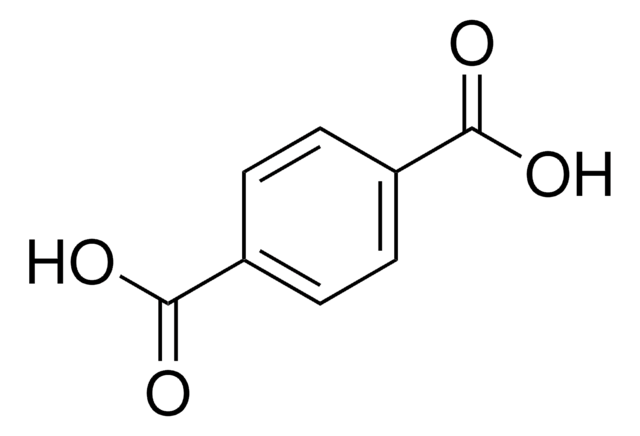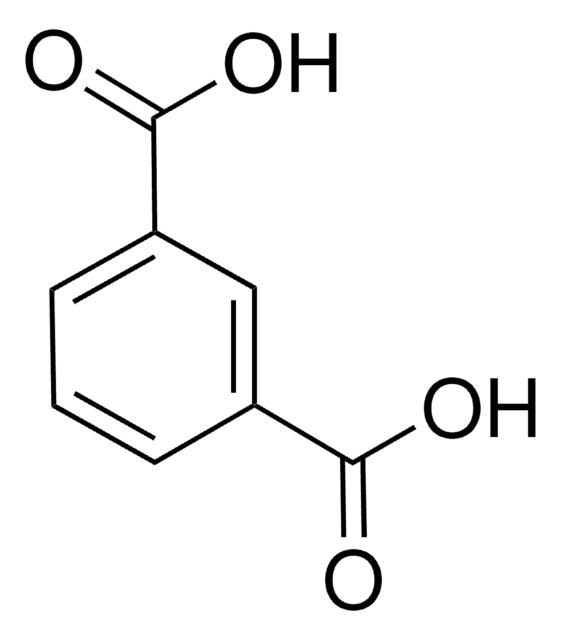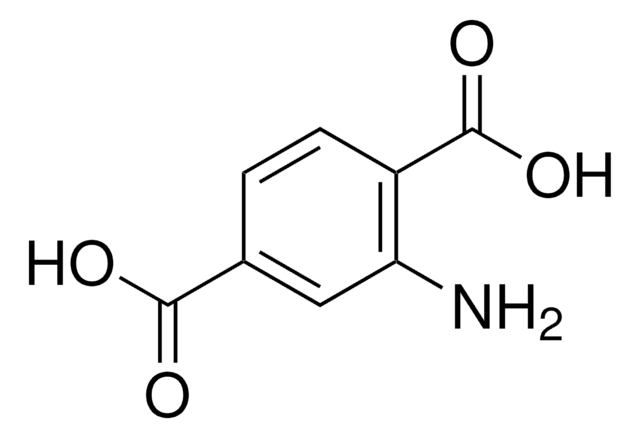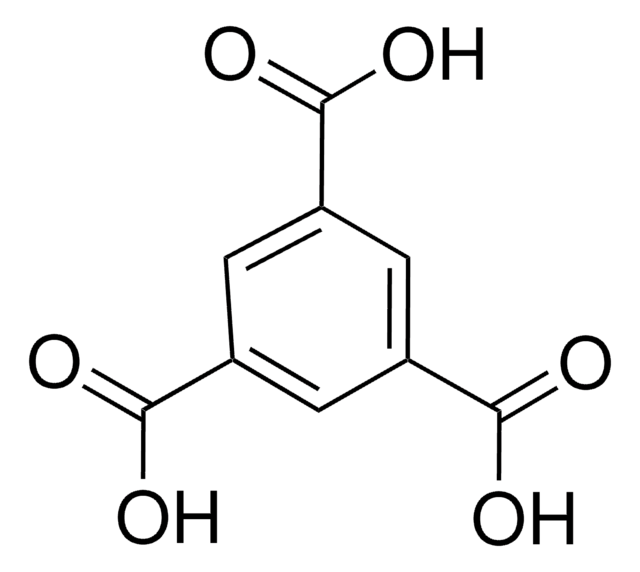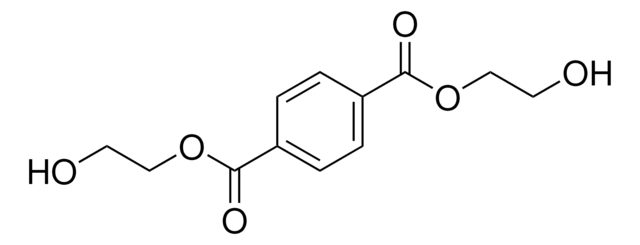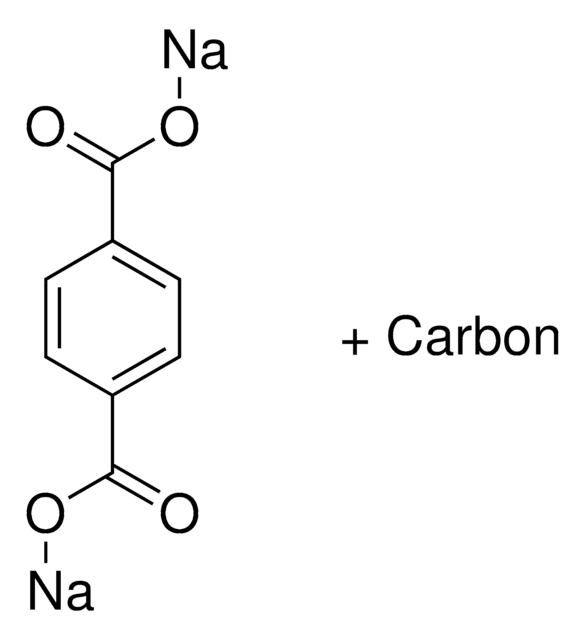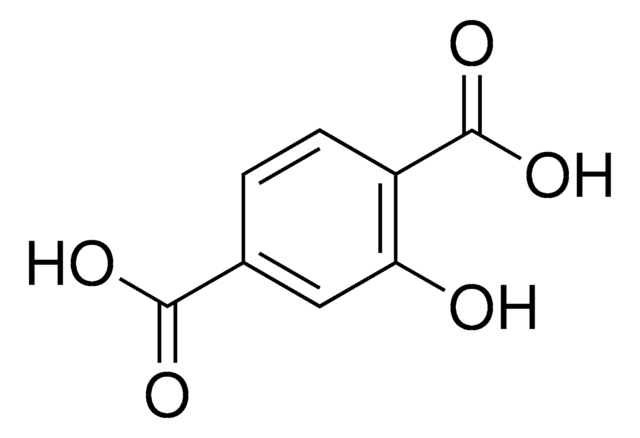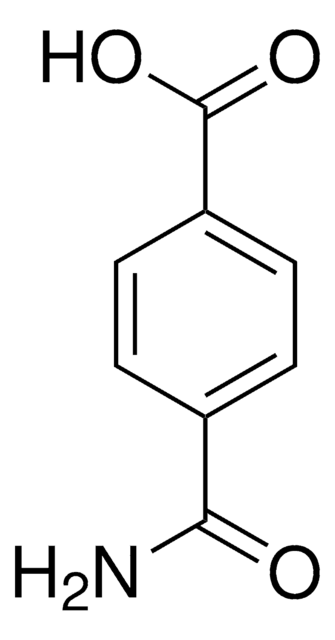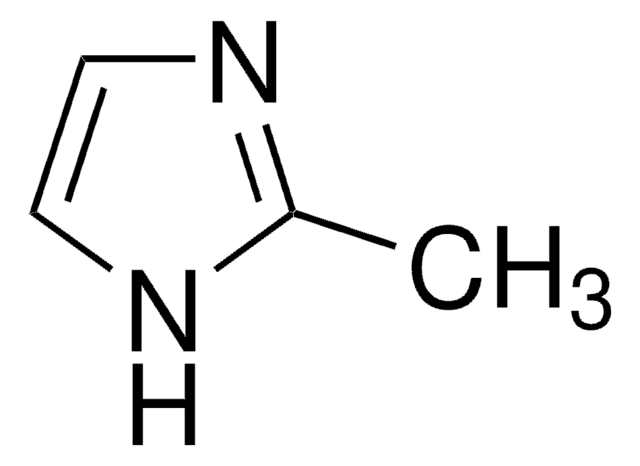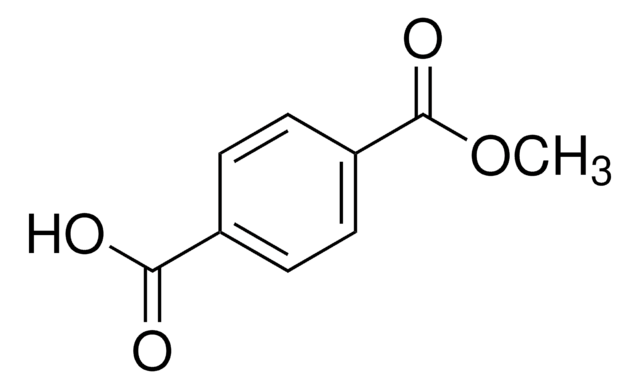8.00762
Terephthalic acid
for synthesis
Sinonimo/i:
Terephthalic acid, 1,4-Benzenedicarboxylic acid, p-Phthalic acid
About This Item
Prodotti consigliati
Livello qualitativo
Saggio
≥98% (acidimetric)
Stato
crystalline
Temp. autoaccensione
496 °C
Potenza
>6400 mg/kg LD50, oral (Rat)
Punto di fusione
402 °C (sublimed)
Solubilità
15 mg/L (experimental)
Densità
1.51 g/cm3 at 20 °C
Temperatura di conservazione
2-30°C
Stringa SMILE
[O-]C(=O)c1ccc(cc1)C(=O)[O-].[H+].[H+]
InChI
1S/C8H6O4/c9-7(10)5-1-2-6(4-3-5)8(11)12/h1-4H,(H,9,10)(H,11,12)
KKEYFWRCBNTPAC-UHFFFAOYSA-N
Applicazioni
- Biotransformation of p-xylene into terephthalic acid by engineered Escherichia coli: This study explores an alternative production method for terephthalic acid (TPA) that could be less energy-intensive and safer than traditional methods. It reports the successful bioconversion of p-xylene into TPA using genetically engineered E. coli, highlighting a potential sustainable approach to TPA production (Luo & Lee, 2017).
- Synthesis and verification of biobased terephthalic acid from furfural: This research presents a novel synthetic pathway for producing TPA from biomass-derived furfural. It represents a significant step towards sustainable chemical production, providing a greener alternative to petrochemical routes (Tachibana, Kimura & Kasuya, 2015).
- Studies on the solubility of terephthalic acid in ionic liquids: Focused on identifying better solvents for TPA, this study investigates the solubility of TPA in various ionic liquids. The findings could lead to improved processing techniques for TPA in industrial applications (Matuszek et al., 2019).
- Engineering terephthalic acid product from recycling of PET bottles: This study explores the depolymerization of PET into TPA and ethylene glycol, highlighting a sustainable approach to recycle PET waste and reduce reliance on petrochemicals (Lee, Chiu & Lee, 2021).
- Biobased terephthalic acid technologies - a literature review: Reviews various biobased approaches to produce TPA, focusing on the potential of renewable feedstocks to replace traditional petrochemical routes. This comprehensive review discusses different biotechnological and chemical methods to synthesize TPA from bio-based sources (Collias et al., 2014).
Risultati analitici
Identity (IR): passes test
Codice della classe di stoccaggio
11 - Combustible Solids
Classe di pericolosità dell'acqua (WGK)
WGK 1
Punto d’infiammabilità (°F)
Not applicable
Punto d’infiammabilità (°C)
Not applicable
Certificati d'analisi (COA)
Cerca il Certificati d'analisi (COA) digitando il numero di lotto/batch corrispondente. I numeri di lotto o di batch sono stampati sull'etichetta dei prodotti dopo la parola ‘Lotto’ o ‘Batch’.
Possiedi già questo prodotto?
I documenti relativi ai prodotti acquistati recentemente sono disponibili nell’Archivio dei documenti.
I clienti hanno visto anche
Il team dei nostri ricercatori vanta grande esperienza in tutte le aree della ricerca quali Life Science, scienza dei materiali, sintesi chimica, cromatografia, discipline analitiche, ecc..
Contatta l'Assistenza Tecnica.